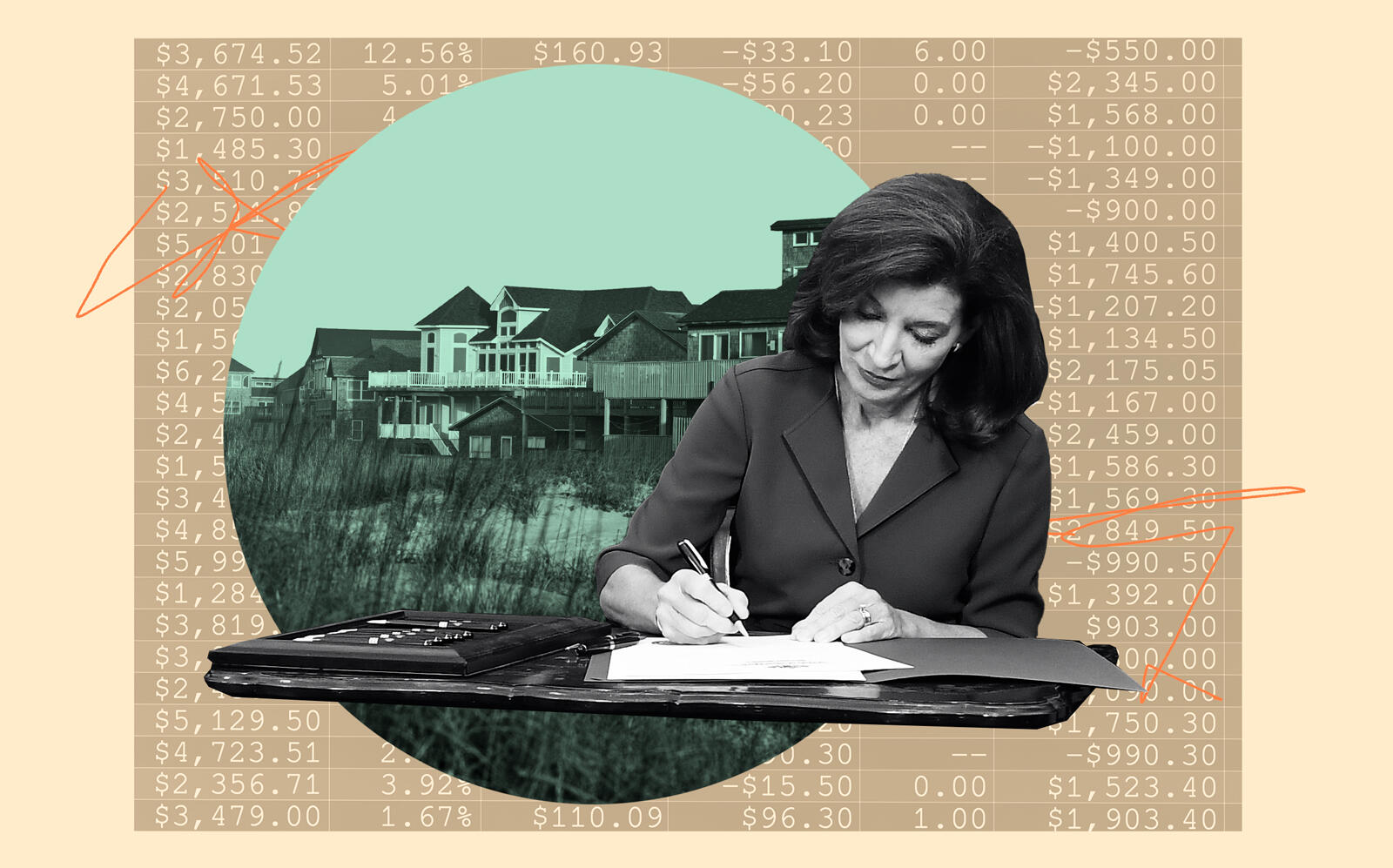An additional real estate sales tax in the East End is one step closer to fruition after Gov. Kathy Hochul signed a Hamptons legislator’s bill into law.
The legislation would add a 0.5 percent real estate transfer tax to certain sales in the Peconic Bay region. According to Newsday, the law is still subject to voter approval at the local level in the five towns that make up the South Fork and North Fork: East Hampton, Shelter Island, Southampton, Southold and Riverhead.
The tax would supplement the Community Preservation Fund, which is a 2 percent tax on real estate transfers. Funds from that tax go towards water quality and preservation initiatives.
Read more


The new tax would be earmarked for a specific purpose: affordable housing in the area. Newsday reports that each of the five towns would develop a community housing plan that shows where revenue from the tax would go.
Its champion, Assembly member Fred Thiele, told Newsday the tax would have generated about $30 million if it were enacted for 2020. The tax has been floated in some capacity for almost 20 years, earning a veto from Andrew Cuomo in 2019.
Taxes on some sales would go down, as the legislation would exempt more low-level transactions. For instance, transfers for less than $1 million would see a benefit on Shelter Island and the South Fork, Thiele told the outlet. The same would be true for transfers below $400,000 on the North Fork.
The community housing plans could be geared towards other initiatives, such as helping first-time homebuyers afford a down payment. The move comes after the East End has felt the pressure from a shortage of affordable housing.
The area’s year-round rentals for blue-collar workers are growing increasingly scarce. Home prices are soaring, making it harder to afford buying in the region. Traffic, meanwhile, is making commuting from other towns more difficult, only adding to workers’ obstacles.
As a result, local retailers have been struggling to fill jobs in the area because workers can’t afford to live in the community.
[Newsday] — Holden Walter-Warner
